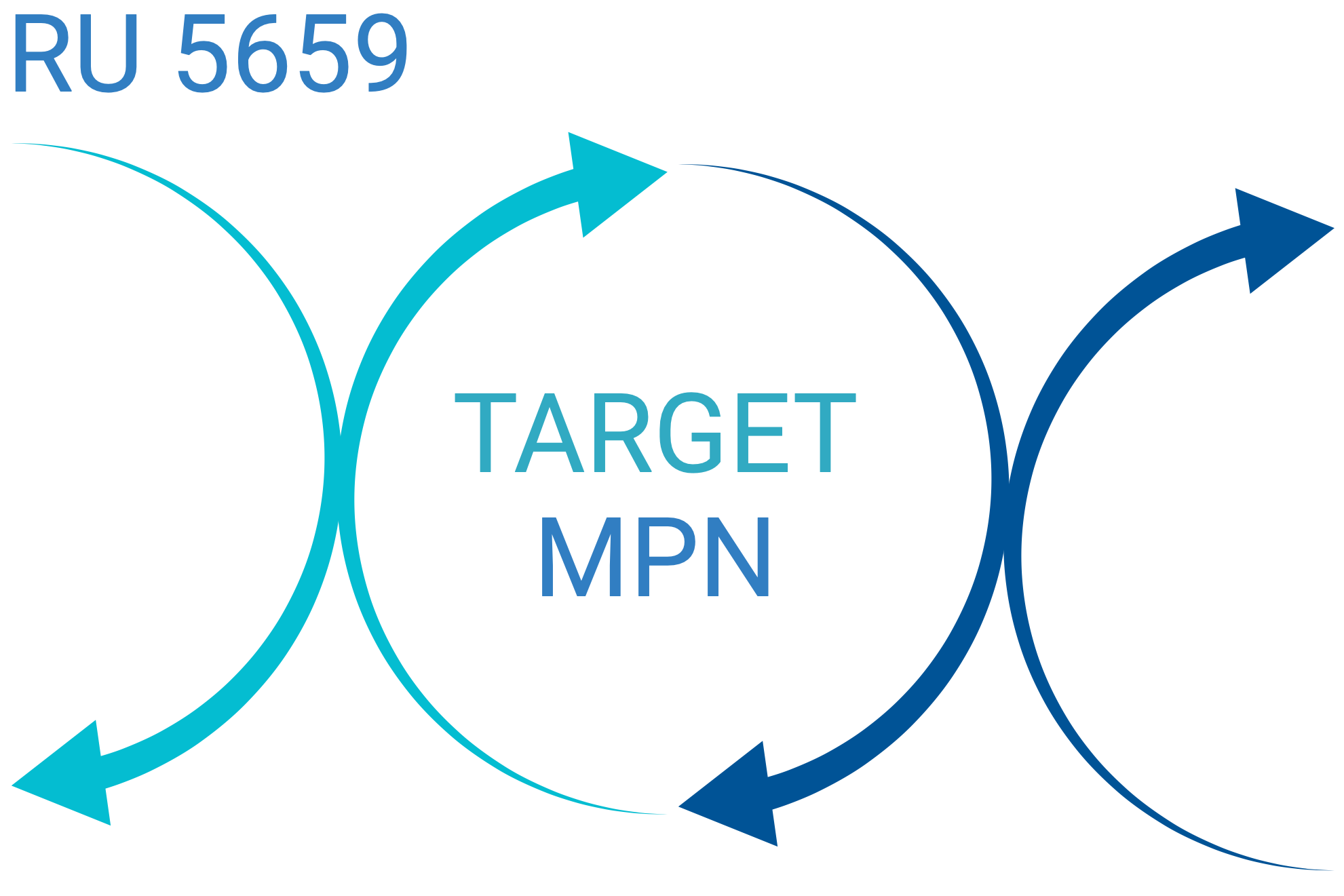Longitudinal comprehensive transcriptome analyses to unravel disease persistence and evolution in MPN
Epitranscriptomic RNA modifications, altered splicing and aberrant non-coding RNA expression might contribute to the disruption of key regulatory pathways which play an important role in MPN persistence and clonal progression. In accordance, the objectives of project 2 are (i) to capture RNA modification changes, aberrant splicing patterns, and deregulated non-coding RNA expression linked to MPN pathogenesis, disease persistence and clonal selection, as well as (ii) to understand the functional consequences of some of these RNA level changes in order to target disease persistence and to prevent progression.
Within this study, we will comprehensively study altered gene expression, epitranscriptomic RNA modifications, alternatively spliced isoforms as well as the expression of non-coding RNAs, such as micro RNAs and circular RNAs. Based on comprehensive RNA-seq analysis of distinct longitudinal MPN cohorts, intra- and inter-individual comparisons will enable us to determine mechanisms of tumor escape and disease persistence. Finally, we aim to perform an ultra-high content single-cell multi-omics approach in selected patients to capture clonal heterogeneity, which might allow us to understand MPN persistence as well as mechanisms of clonal progression and which will have the power to detect novel therapeutic strategies for targeted immunological treatment approaches as well.
For all aims, data analysis will include the integration of comprehensive genomic and clinical information, which is available within our German Study Group MPN-BioRegistry, followed by technical and functional validation of findings. Ultimately, this project will identify biomarkers and resistance mechanisms that provide the basis for developing novel therapeutic strategies that can prevent disease progression and leukemic transformation. As detailed below, the work program will be split between the groups in Berlin and Ulm, but the overarching research questions will be addressed in a common effort, and the data will be also analyzed jointly in an integrative fashion to create synergies. In brief, we aim:
To define commonalities and specific aspects of the transcriptome in genetically and clinically defined subtypes of MPN.
To assess for changes in transcriptomic profiles during persistence, resistance and progression/leukemic transformation of the MPN clone.
To investigate MPN tumor heterogeneity and its contribution to disease progression?



